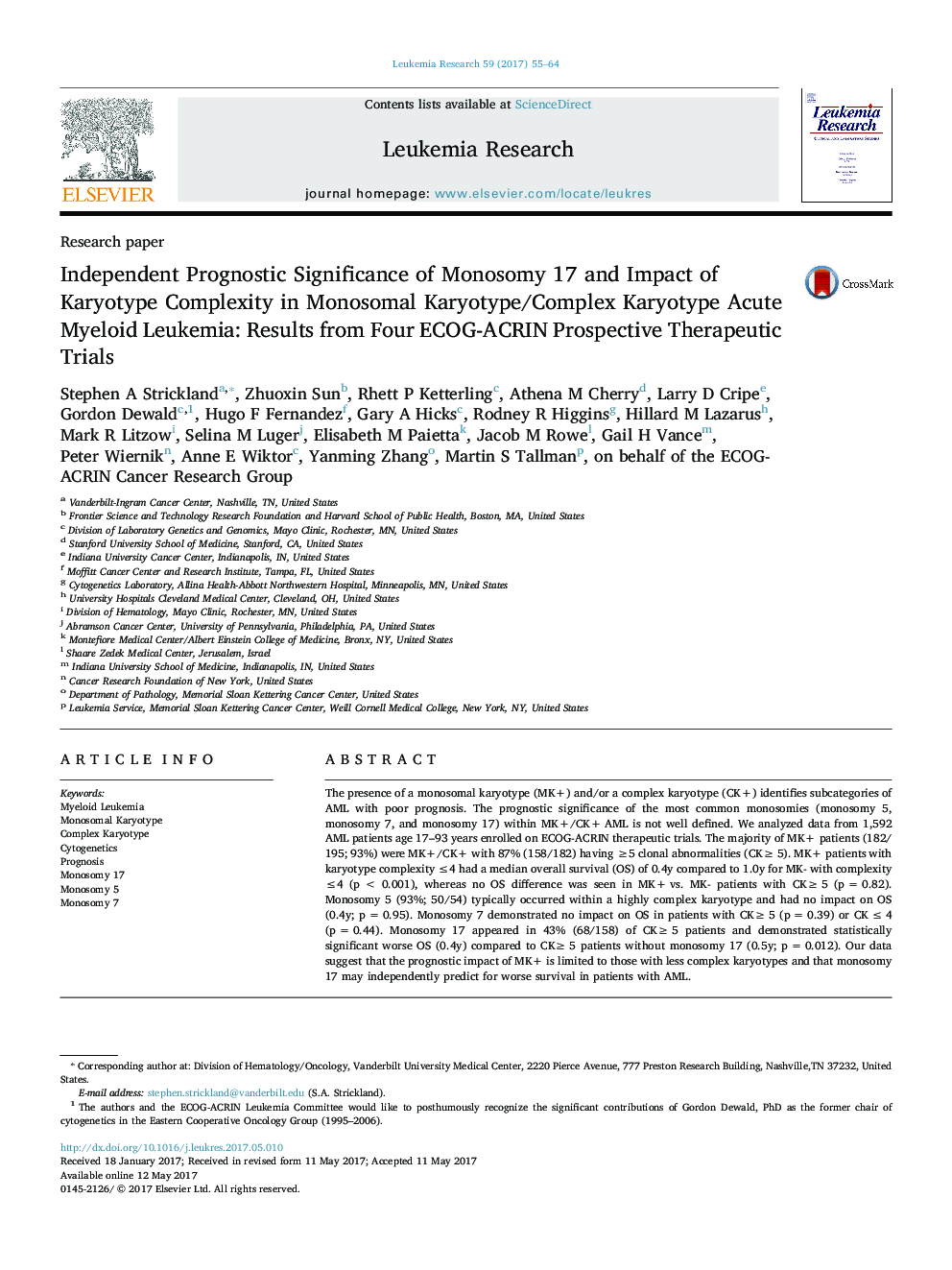| Article ID | Journal | Published Year | Pages | File Type |
|---|---|---|---|---|
| 5527741 | Leukemia Research | 2017 | 10 Pages |
â¢Prognostic impact of monosomal karyotype appears dependent on karyotype complexity.â¢Monosomy 5 lacks prognostic impact in context of AML with monosomal karyotype.â¢Monosomy 17 independently predicts for inferior survival among AML patients
The presence of a monosomal karyotype (MK+) and/or a complex karyotype (CK+) identifies subcategories of AML with poor prognosis. The prognostic significance of the most common monosomies (monosomy 5, monosomy 7, and monosomy 17) within MK+/CK+ AML is not well defined. We analyzed data from 1,592 AML patients age 17-93 years enrolled on ECOG-ACRIN therapeutic trials. The majority of MK+ patients (182/195; 93%) were MK+/CK+ with 87% (158/182) having â¥5 clonal abnormalities (CKâ¥Â 5). MK+ patients with karyotype complexity â¤4 had a median overall survival (OS) of 0.4y compared to 1.0y for MK- with complexity â¤4 (p < 0.001), whereas no OS difference was seen in MK+ vs. MK- patients with CKâ¥Â 5 (p = 0.82). Monosomy 5 (93%; 50/54) typically occurred within a highly complex karyotype and had no impact on OS (0.4y; p = 0.95). Monosomy 7 demonstrated no impact on OS in patients with CKâ¥Â 5 (p = 0.39) or CK â¤Â 4 (p = 0.44). Monosomy 17 appeared in 43% (68/158) of CKâ¥Â 5 patients and demonstrated statistically significant worse OS (0.4y) compared to CKâ¥Â 5 patients without monosomy 17 (0.5y; p = 0.012). Our data suggest that the prognostic impact of MK+ is limited to those with less complex karyotypes and that monosomy 17 may independently predict for worse survival in patients with AML.
